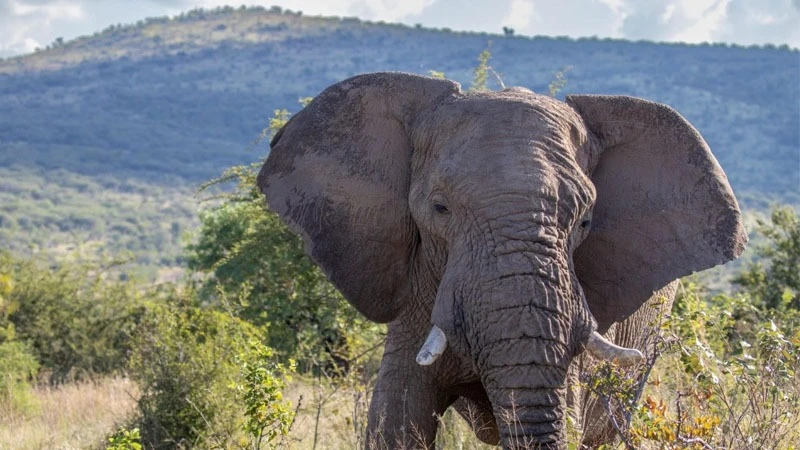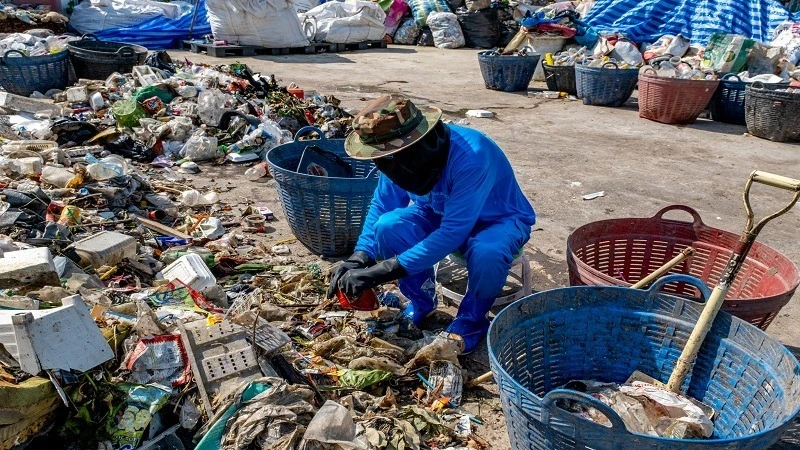Silent bullets: Poachers device new method of killing elephants mutely

SILENT bullet is a new phrase being used -albeit silently- in the murky world of wildlife poaching. The terminology refers to the killing of elephants and other wildlife without the usual loud gunshot sound.
This means poachers can commit their crime just a few meters from rangers but without attracting their attention. The deadly technique is a milestone for poachers but a catastrophe for wildlife and conservationists.
Investigation conducted by this writer in collaboration with Internews Earth Journalism Network found that the new poaching technique is widely known by residents of Barikiwa, Mpigamiti and Kikulyungu villages in Liwale District, Lindi Region and Kiuma, Uria and Kiparang’anda villages in Tunduru and Namtumbo districts in Ruvuma region.
According to residents neighbouring Nyerere National Park and Kiparang’andu Game Reserve, the giant African elephants are being killed through inexpensive means designed to evade detection.
This writer worked with former ivory dealer-turned conservationist and informer who sought anonymity for his safety. He said poachers use poison extracted from acokanthera plant to inject into fried bread (maandazi) and feed elephants, then wait for the animal to die.
He said the poison injected into pastries is lethal enough to kill an elephant in a few hours or minutes without raising any alarm.
“You will never hear any noise but for sure you will find dead elephants and their ivory chopped off,” he said.
“This method is simple to use, cheap and less risky to the bad guys.” he said.
He said people who did not know that he had reformed recently approached him with several kilogrammes of ivory at Kiuma Village. He was also offered several kilogrammes at Uria Village.
“I changed my ways and became an informer working with authorities since 2012 so I know a lot,” he said.
He claimed that the poison which is known locally as kupicha is purchased from a neighbouring country to the south where the plant that contains it is plenty.
“One needs only four small bottles of acokanthera poison which go for 50,000/- to inject it into maandazi, feed the elephant and wait for it to lie down, dead,” he said.
Dunia Almasi, Tunduru District Natural Resource and Environment Officer, confirmed the use of poison to kill elephants but not the new method. However, he did not rule it out.
“What I have heard is the use of pumpkin and watermelon in which poachers inject poison and an elephant dies a few hours after consuming the same,” he said.
“So, it’s quite possible for them to use poisoned pastries to kill jumbos. Remember, this is one of the places with high elephant population in the country and poachers know that and they always come up with new methods to facilitate their crime.”
Almasi said human activities near and within protected areas have made conservation even more difficult.
“Elephants nowadays live near people’s residences which might fuel poaching incidents. So, we need to shift from managing wildlife to managing people’s movements,” he said.
Ephraim Mwangomo, Nyerere National Park Assistant Conservation Commissioner, said his office had no information about the use of the silent bullet but he promised to take action to establish the facts.
“What I know is the injection of poison into pumpkins and watermelon which we managed to control,” he said.
“Any illegal business always has its unique techniques. As we explore the best ways to stop poachers, they also come up with other ways to escape detection. Since 2019 we have recorded low poaching incidents due to enhancement of security measures.”
Namtumbo District Natural Resources and Environment Officer Prisca Msuha said poaching incidents recorded low in 2023. However, she was unaware of the new poaching method.
“Many elephants these days enter human settlements. If there is such kind of poaching by using poison, I am not aware of it, probably because it is done secretly,” she said.
But this silent gun is not being used here in Tanzania alone. Felix Micheni, Kenyan veterinary specialist, confirmed the existence of the natural poison which kills elephants.
In his article published by The Sheldrick Wildlife Trust last year, he said that the natural and easily extracted acokanthera poison is a typical example of historical poisons with the ability to kill an elephant in a matter of minutes.
“(It is potent) if fresh and well prepared, whilst being incredibly difficult to treat or detect through conventional means, which is why such a brutal age-old method of poaching is still used today and is still killing hundreds of majestic elephants” reads the article.
In the former Kalulu Game Reserve in Tunduru District and Namtumbo Game Reserve which merges with Nyerere National Park, elephants normally move from Mozambique to Tanzania and vice versa, which makes it a hotspot for poaching.
In February 2019, Tanzania marked a great move in fighting illegal poaching and trafficking after sentencing Yang Fenglan, a Chinese businesswoman nicknamed the "Ivory Queen", to 15 years in jail for smuggling hundreds of elephant tusks.
Yang was accused of operating one of Africa's biggest ivory-smuggling rings, responsible for smuggling $2.5m (£1.9m) worth of tusks from some 400 elephants. Two Tanzanian men were also found guilty of involvement in the ring.
Ivory poaching is said to have caused a 20 percent decline in the population of African elephants in the last decade.
But according to Minister for Natural Resources and Tourism Angela Kairuki the number of elephants has mounted from 43,330 in 2014 to 60,000 in 2023 due to conservation efforts.
The illicit trade is reportedly fuelled by high demand of ivory from China and South East Asia, where it is used to make jewellery and ornaments.
Top Headlines
© 2025 IPPMEDIA.COM. ALL RIGHTS RESERVED

























